Dr. John Sandham
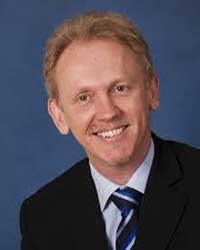 John is a chartered engineer that has been working in the healthcare technology field for over 30 years. He is a recognised expert in his field of healthcare technology management. He has been instrumental in changing the device management processes of many NHS Trusts and has a proven track record in delivering safe recurrent cost saving improvements, which also advances regulatory compliance.
John is a chartered engineer that has been working in the healthcare technology field for over 30 years. He is a recognised expert in his field of healthcare technology management. He has been instrumental in changing the device management processes of many NHS Trusts and has a proven track record in delivering safe recurrent cost saving improvements, which also advances regulatory compliance.
His knowledge of medical devices includes general biomedical, X-ray and pathology. John has been chairman of EBME (www.ebme.co.uk) since 1999. He has spoken on radio and appeared on television representing the medical engineering viewpoint and acting as an expert in his field. John has in excess of 150 published educational articles. He has been published in the Open University Science review, Engineering Technology Journal (IET), plus various other newspapers, procurement and scientific publications and the EBME website www.ebme.co.uk.
John is also a director in TBS GB Ltd, a fellow of the Institute of Work Based Learning, and a visiting Senior Research Fellow at Middlesex University. He is keen to share his knowledge and raise the profile of Medical Engineering.
David Mulvey
10.00 - 10.30: Vital signs; what are they?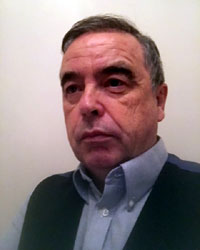 David’s Medical Engineering experience goes back some 35 years. Working in the commercial sector with S&W, Vickers Medical and his own company Artemis Medical Ltd, David held roles of Senior Engineer, Technical Training Manager and Technical Director. Having a passion to help Biomedical Engineers develop their skill and knowledge in such areas as Anaesthesia, Cardiology, Neonatology and Ventilation, David has run countless training courses and seminars. His training has gained a worthy reputation for a quality and practical approach to many complex clinical engineering subjects.
David’s Medical Engineering experience goes back some 35 years. Working in the commercial sector with S&W, Vickers Medical and his own company Artemis Medical Ltd, David held roles of Senior Engineer, Technical Training Manager and Technical Director. Having a passion to help Biomedical Engineers develop their skill and knowledge in such areas as Anaesthesia, Cardiology, Neonatology and Ventilation, David has run countless training courses and seminars. His training has gained a worthy reputation for a quality and practical approach to many complex clinical engineering subjects.
The past 8 years David has worked within the NHS as both Technical Trainer and Technical Support Engineer. He has broadened his engineering experience with roles in Pathology and Imaging (MR, CT and X-Ray) and remains committed to providing close support to the clinicians in these areas. Throughout his career David has sought to ensure that equipment and support are provided at the best possible value for money. Working with suppliers in recent years he has striven to ensure that his hospital receives the best service at the lowest costs. Knowing as he does how companies price equipment and service provision, David can often be said to be “Poacher come Game Keeper”. In todays NHS controlling costs and ensuring quality are one of most import roles of every Biomedical Engineer and David has been at the forefront of sharing his experience in this area.
Debbie Pope
10.30 - 11.00: Delivering ‘Precision Medicine’ through connected care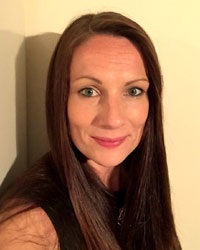 Debbie Pope is the Country Manager (UK & Ireland) for Qualcomm Life. Debbie carries 10 years of NHS commercial knowledge and experience working directly with the NHS and their industry partners across most healthcare sectors and divisions from NHS Digital and Public Health to CCGs, STPs and directly with Primary & Secondary care organisations to enable them to deliver a smarter healthcare through digital technology.
Debbie Pope is the Country Manager (UK & Ireland) for Qualcomm Life. Debbie carries 10 years of NHS commercial knowledge and experience working directly with the NHS and their industry partners across most healthcare sectors and divisions from NHS Digital and Public Health to CCGs, STPs and directly with Primary & Secondary care organisations to enable them to deliver a smarter healthcare through digital technology.
Debbie leads Qualcomm Life to drive the trend in delivering intelligent care anywhere across the health continuum from hospital to home through disruptive innovation to keep healthy people healthy, help patients recover faster and empower people with chronic conditions to have a better quality of life. The promise of Precision Medicine is to deliver the right treatment at the right time taking into account individuals' health history, genes, environments, lifestyles, and preferences. This breakthrough approach has already revolutionised how we treat disease by hyper-personalising diagnosis and treatment. This new era of evidenced-based, precise care is driven, in part, by connected monitoring and therapies that will play a major role in advancing the delivery of patient-generated health data. This data will help scale precision medicine by giving providers a comprehensive and continuous view of patient data that will guide preventative care and chronic disease management. Debbie will give an understanding of how connected patient data and powerful insights will fuel predictive care models, activate patients, and improve outcomes, drawing upon experiences of projects currently being undertaken in the UK and Internationally.
David Stanger
11.30 - 12.00 Advances in Electronic Foetal Heart Rate Monitoring 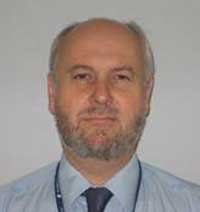 David Stanger is a degree level electronic engineer who has worked for Huntleigh for over 35 years, starting as a test engineer, moving through roles in R & D, engineering manager, product manager and in his current position as Global Business Unit Manager for the obstetric business based in Cardiff.
David Stanger is a degree level electronic engineer who has worked for Huntleigh for over 35 years, starting as a test engineer, moving through roles in R & D, engineering manager, product manager and in his current position as Global Business Unit Manager for the obstetric business based in Cardiff.
In 2005, Huntleigh acquired the Sonicaid business and David has worked closely with Professor Redman et al, at Oxford University, on the Dawes-Redman CTG analysis and is a regular presenter at study days & conferences both in the UK and abroad on fetal monitoring and the Dawes-Redman CTG analysis.
Lesley Sneddon
12.00 - 12.30 ISO55001: Quality & Asset Management in Healthcare Technology?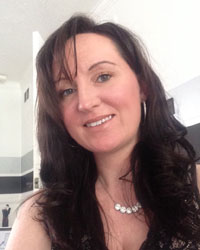 Lesley Sneddon has a BSc in Medical Physics Technology and is currently studying towards a Postgraduate Certificate in Business Administration with the Open University. She is an active member of the Institute of Asset Management, taking part in the Scottish branch meetings. She has over 16 years of experience working in various Medical Equipment Management Departments, maintaining medical equipment under ISO 9001 Quality Management System.
Lesley Sneddon has a BSc in Medical Physics Technology and is currently studying towards a Postgraduate Certificate in Business Administration with the Open University. She is an active member of the Institute of Asset Management, taking part in the Scottish branch meetings. She has over 16 years of experience working in various Medical Equipment Management Departments, maintaining medical equipment under ISO 9001 Quality Management System.
Previously a Section Manager of the Vale of Leven Hospital Bioengineering department she was then seconded to be Project Lead in the transition of Quality Systems from ISO9001 to the Asset Management System standard ISO 55001. Lesley has now become Quality Manager for Medical Equipment Management in GG&C, based in the Queen Elizabeth University Hospital, Glasgow.
The department is currently certified to ISO 9001:2008 however planning on replacing this with successful certification of ISO 55001 later this year.
Mala Soccalingame
14.15 - 14.45 Cholangioscopy and the SpyGlass
 Mala is French and has a biomedical engineering background. She has held international Clinical, Sales and Marketing roles in diverse companies of the MedTech industry for 18 years. She is passionate about innovative medical technologies and has made her career goal to develop, launch and promote products and solutions that improve medical practices, quality of care and lives of patients around the world. Mala is now the Senior Product Manager for the SpyGlass™ DS System at Boston Scientific in EMEA (Europe, Middle East, and Africa). Boston Scientific is the global leader in Gastro-Intestinal (GI) Endoscopy single-use devices. SpyGlass™ DS System consists of a capital equipment piece, the SpyGlass DS Digital Controller, and a sterile, single-use mini-endoscope, the SpyScope™ DS Access & Delivery Catheter. The SpyScope is a 10Fr catheter which provides the GI endoscopist with a clear view of the bile, hepatic and pancreatic ducts, and a working channel to introduce miniaturized devices such as the SpyBite™ Biopsy Forceps or intracorporeal lithotripsy probes. SpyGlass technology allows clinicians to effectively solve bilio-pancreatic diseases, including faster cancer diagnosis, or complex stones clearance, for which the traditional techniques, such as Endoscopic UltraSound, MRCP or ERCP, don’t provide acceptable success rates.
Mala is French and has a biomedical engineering background. She has held international Clinical, Sales and Marketing roles in diverse companies of the MedTech industry for 18 years. She is passionate about innovative medical technologies and has made her career goal to develop, launch and promote products and solutions that improve medical practices, quality of care and lives of patients around the world. Mala is now the Senior Product Manager for the SpyGlass™ DS System at Boston Scientific in EMEA (Europe, Middle East, and Africa). Boston Scientific is the global leader in Gastro-Intestinal (GI) Endoscopy single-use devices. SpyGlass™ DS System consists of a capital equipment piece, the SpyGlass DS Digital Controller, and a sterile, single-use mini-endoscope, the SpyScope™ DS Access & Delivery Catheter. The SpyScope is a 10Fr catheter which provides the GI endoscopist with a clear view of the bile, hepatic and pancreatic ducts, and a working channel to introduce miniaturized devices such as the SpyBite™ Biopsy Forceps or intracorporeal lithotripsy probes. SpyGlass technology allows clinicians to effectively solve bilio-pancreatic diseases, including faster cancer diagnosis, or complex stones clearance, for which the traditional techniques, such as Endoscopic UltraSound, MRCP or ERCP, don’t provide acceptable success rates.
Simon Pike
14.45 - 15.15: Advances in 3D cone beam CT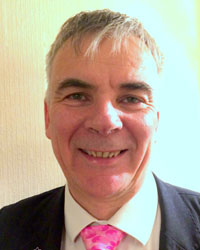 Simon has a background in electro mechanical engineering, starting work as an engineer for a dental supply company in the mid 90’s initially servicing autoclaves, suction pumps, ultrasonic cleaners and any equipment a dentist used that could be repaired.
Simon has a background in electro mechanical engineering, starting work as an engineer for a dental supply company in the mid 90’s initially servicing autoclaves, suction pumps, ultrasonic cleaners and any equipment a dentist used that could be repaired.
Enjoying more technical products he started working on the film based X ray systems, dental chairs and units. As digital x-ray was being introduced to the market Simon installed the first Planmeca digital OPG in 1999 and when Planmeca developed a scanning Ceph he installed their first one in 2001. When Planmeca launched its CBCT system in 2008 he installed the first systems in the UK. Simon became the technical manager for Planmeca products, responsible for a team of engineers working on X Ray equipment, dental chairs and units. Following the growing sales in digital x ray Simon set up a training, digital installation and support team.
Simon currently works for Xograph Healthcare as a product manager for their dental and maxillofacial imaging products, encapsulating both 2D and 3D x-ray systems. Presenting the company’s products to surgeons, radiographers and managers. After the sale is completed and the units installed he is also responsible for applications training with the radiographers and surgeons.
Dr. Stewart Watson
15.45 - 16.15: Open Source Bluetooth for monitoring devices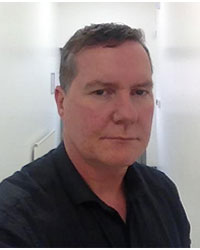 After graduating with an MSc in Medical Physics from the University of Aberdeen, Stuart worked as a research fellow at the University of Glamorgan and the University Of Wales College Of Medicine, Cardiff (1999-2011). His research was primarily focused on biomedical electrical impedance measurement and imaging systems and in particular the relatively new technique Magnetic Induction Tomography (MIT).
After graduating with an MSc in Medical Physics from the University of Aberdeen, Stuart worked as a research fellow at the University of Glamorgan and the University Of Wales College Of Medicine, Cardiff (1999-2011). His research was primarily focused on biomedical electrical impedance measurement and imaging systems and in particular the relatively new technique Magnetic Induction Tomography (MIT).
He is currently Head of R&D Services in the Dept. of Medical Physics, Salford Royal NHS Foundation Trust, managing a team of engineers providing clinical research instrumentation and bespoke clinical devices development, calibration services and the delivery of a specialist photobiology diagnostic service. Current project collaborations with University of Manchester groups include the development of a microwave-based system for neurological application, physiological measurement and stimulation systems for stroke rehabilitation and pain research, and optical systems for dermatological and rheumatology research.
Stuart strongly believes clinical engineers have a major role to play within the NHS in driving the effective adoption of new technology to both improve healthcare outcomes and control costs: it’s been said that ‘an engineer is someone who can do for a pound what any fool can do for two’, and the NHS could certainly do with the extra pounds.
He obtained his PhD in biomedical engineering, is an HCPC registered Clinical Scientist, Chartered Engineer and member of IPEM.



